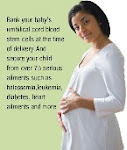Breastfeeding is a very special time when you experience a wonderful bonding with your baby. Nutrition is an important aspect of breastfeeding.
There are many reasons:
The quality of your milk influences the growth of your baby.
Mother’s milk is the only source of nutrients and energy for the first 6 months of life for your baby.
Calories are needed for milk production and breastfeeding
There is an increased demand for nutrients and calories during breastfeeding. Inadequate calorie intake can make one weak and tired.
The section below discusses some of the important nutrients and how they help a mother and her baby.
Proteins
The average daily protein requirement of breastfeeding mothers is 75 g. This is to improve the protein content in your milk as well as meeting your body’s requirement for protein.
Some protein rich foods are:
Eggs, meat, fish and chicken.
Milk, curd and Indian cottage cheese (paneer).
Nuts and seeds like almond, cashew nuts, peanuts, etc.
Pulses and legumes (green gram, soyabean, red gram, Bengal gram, etc).
Fats
Composition of fats in breastmilk is determined by the mother’s diet. The daily requirement of fat during breastfeeding is 45 g of Visible Fat and it is essential to eat the right fat.
Breast milk contains a fatty acid called docosahexaenoic acid (DHA), which is essential for your baby's vision and brain development. One important source of DHA is fish. The content of DHA is very low in vegetarian sources of diet. The DHA content in Indian food is low as it is mainly vegetarian.
Calcium
Calcium is a major ingredient in breastmilk. You need calcium for teeth and also protect your bone strength. Breastfeeding mothers require high amounts of calcium, amounting to 1000 mg/day. If your diet does not contain enough of calcium, your body will use calcium from your bones to meet your increased needs. This may weaken your bones and increase the risk of developing osteoporosis or fractures later in life.
Good sources of calcium are:
Dairy products such as milk, paneer and curd.
Sesame seeds and ragi.
Green leafy vegetables like palak, gongura, drumstick leaves, etc.
Iron
There is an increased requirement in pregnancy. The iron requirement during breastfeeding is 30 mg/day. During breastfeeding, you need to rebuild your iron stores with iron-rich foods. Lack of iron can lead to anemia where you will feel weak, light-headed, tired and get frequent cold and fever.
Good sources of iron are:
Green leafy vegetables
Raagi and other cereals
Meat, chicken and fish
Legumes (beans)
Nuts and dried fruit
Vitamins and minerals
Vitamins and mineral levels in breastmilk can be affected by maternal intake as well as length of lactation. So it is essential to include foods that are rich in all vitamins and minerals. Breastfeeding also increases the need for folic acid, vitamins B12, B6, B2 and C, which also help in preventing anemia.
Some good sources of vitamins are:
Nutrients Daily requirements
Folate 150 µg
Vitamin C 80 mg
Vitamin B12 1.5 µg
Vitamin B6 2.5 mg
Vitamin B2 1.6 mg
Vitamin A (beta-carotene) 3800 µg
Folate: Green leafy vegetables such as palak, broccoli, cabbage, amaranth, liver, etc.
Vitamin C: Citrus fruits (amla, orange, musambi, lime), tomatoes, capsicum, cauliflower, cabbage, etc. • Vitamin B12: Found in animal products such as milk, meat, paneer and curd.
Vitamin B6: Palak, drumstick leaves, other keeras, watermelon, tomatoes, carrots, brinjal, etc.
Vitamin B2: Cereals, legumes, oil seeds, roots, vegetables, milk eggs, fish meat, skim milk powder, etc.
Vitamin A: Dark green and yellow vegetables and fruits such as palak, capsicum, papaya, pumpkin, curry leaves, etc.
Minerals like copper, selenium, zinc act as antioxidants and are essential for the mother and the growing baby. Other minerals like magnesium helps in the tissue growth and bone formation and iodine is important for the production of hormones.
Some good sources of minerals are:
Copper: Shell fish, whole grains, beans, nuts, potatoes and meat.
Zinc: Meat, chicken, fish, peanuts, legumes.
Selenium: Vegetables, grains, fish, shellfish, eggs, meat, etc.
Iodine: Fish, iodized salt.
Most of the time, the food you take will not meet the increased nutrient requirement for a breastfeeding mother. Moreover, Indian diets are mainly vegetarian in nature. As many of the vital nutrients are found mainly in animal foods, you need to take nutritional supplements. A supplement containing the DHA along with the other essential nutrients will provide you with adequate nutrition and energy.
Know About Pregnancy
Healthy Pregnancy
Fertility basics
Planning for pregnancy
Want a smart baby?
Pregnancy health
Eating For Two
Your growing baby
Exercise in pregnancy
Benefits of exercising,Recommended exercises
Pregnancy Weight Gain
Sex During Pregnancy
Travel During Pregnancy
Stress in pregnancy
High Blood Pressure
Diabetes In Pregnancy
Labor
C-section
New mother care
Healthy Breast Feeding
Postpartum depression
Stretch marks
Diet during Breast Feeding
Birth Control choices
A Pill In Time
Miscarriage
Home/Divya Hospital
Normal Call:9445820425 and 9445842405 Divya Hospital,Medavakkam Main Rd,20,Nr.Madipakkam Koot Road-Axis Bank,Madipakkam,Chennai 600091
Dr.Jacquline Divyanandh M.B.B.S, DGO Obstetrician&Gynecologist.
Other Specialties..
Dr.Jacquline Divyanandh M.B.B.S, DGO Obstetrician&Gynecologist.
Other Specialties..
Know About Pregnancy Healthy Pregnancy Fertility basics Planning for pregnancy Want a smart baby? Pregnancy health Eating For Two Your growing baby Exercise in pregnancy Benefits of exercising,Recommended exercises Pregnancy Weight Gain Sex During Pregnancy Travel During Pregnancy Stress in pregnancy High Blood Pressure Diabetes In Pregnancy Labor C-section New mother care Healthy Breast Feeding Postpartum depression Stretch marks Diet during Breast Feeding Birth Control choices A Pill In Time Miscarriage ....Normal Call:9445820425 and 9445842405




